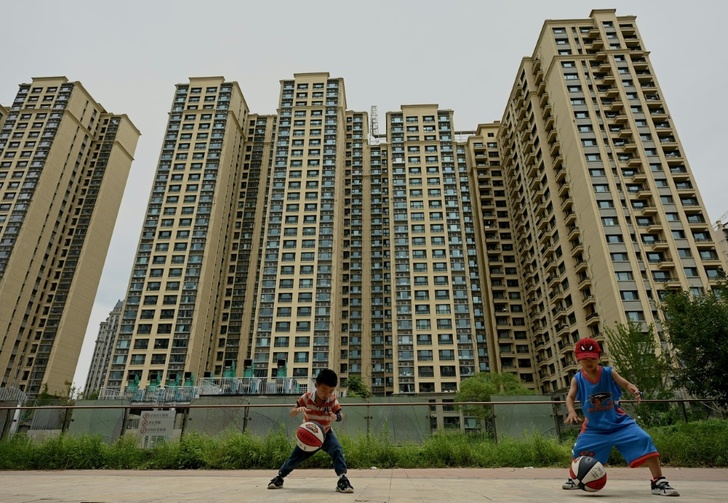A unit of embattled Chinese developer Evergrande has failed to repay its loans and must pay a guarantor $1.1 billion, the company said in a Hong Kong stock exchange filing.
Evergrande has been involved in restructuring negotiations after racking up $300 billion in liabilities in the wake of Beijing's crackdown on excessive debt and rampant speculation in the real estate sector.
The announcement comes after the company failed to publish a "preliminary restructuring proposal" by the end of July, despite assuring creditors it was on track to meet the deadline.
Evergrande said Friday it had made "positive progress" in its restructuring process, floating the potential use of equity in its offshore subsidiaries to repay bondholders but falling short of providing concrete details.
And on Sunday, the company said subsidiary Evergrande Group (Nanchang) had failed to fulfil its debt obligations to an unnamed third party.
Evergrande Nanchang had provided counter-guarantees in the form of a pledge of 1.3 billion shares in Shengjing Bank that it held, according to the filing.
"As the borrowers failed to repay the loans, the applicant carried out its obligations under the guarantee and claimed against the subsidiary," it said.
It noted that the guarantor has priority to receive compensation from the sale of the shares, and that the scope covers the amount paid by the applicant (7.3 billion yuan).
Evergrande, a major name in China's property sector, has in recent months scrambled to offload assets, with chairman Hui Ka Yan paying some of its debts using his personal wealth.
It has since found a potential buyer for its Hong Kong headquarters, according to media reports.
Its woes are emblematic of the problems rippling across China's massive property sector, with smaller companies also defaulting on loans and others struggling to raise cash.
With developers strapped for finances and projects stalling, furious homebuyers in dozens of cities have also begun refusing to pay their mortgages.
"The central government needs to take strong and credible measures to ensure stalled projects are finished and delivered" to restore confidence, said Andrew Baston of Gavekal Dragonomics in a recent report.
"The problem is mostly a political one: the leadership has committed significant political capital to strict property policies over the past few years," he added.
"Can the government accept the embarrassment of such an obvious reversal... probably yes, but the risk is that it takes a while to get there."
bys/oho/dan
© Agence France-Presse
Your content is great. However, if any of the content contained herein violates any rights of yours, including those of copyright, please contact us immediately by e-mail at media[@]kissrpr.com.
Source: Story.KISSPR.com

